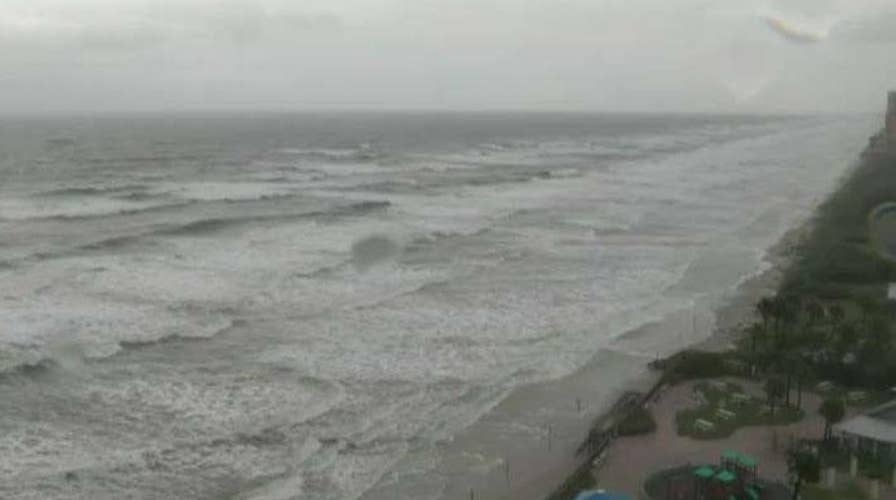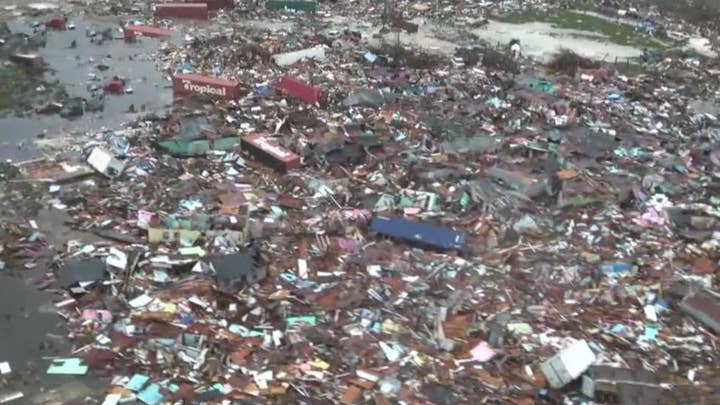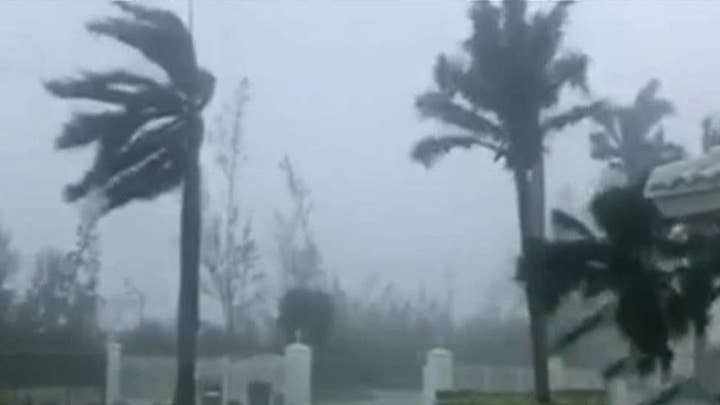Salvation Army official says damage in Bahamas is unprecedented
Buildings have been swept away by the wind and submerged by flooding, says Major Clarence Ingram, divisional commander of the Bahamas division for the Salvation Army.
The Bahamas prime minister raised the death toll from Hurricane Dorian on Tuesday from five to seven and said more deaths were expected as the storm begins to move away from the island archipelago.
Hubert Minnis said the deaths involved two people who were injured and were taken to New Providence Island. The full scope of the disaster won't be known until the storm passes.
"We are in the midst of one of the greatest national crises in our country's history," he said. "No effort or resources will be held back."
He said he flew over the Abaco Islands and expected to do the same in Grand Bahama when the weather permitted him to do so. Dorian, which was later downgraded to a Category 2 storm, was the most powerful ever to hit the Bahamas, with floodwaters destroying thousands of homes, trapping people and making resue efforts all the more difficult.
Around 45 percent of homes in Abaco and Grand Bahama were believed to be damaged or destroyed when the areas were pounded by 185 mph winds. The Grand Bahama Airport was under six feet of water as of Tuesday.
Images revealed the scope of damage as buildings were flooded and at least one community was destroyed.
Using jet skis, boats and even a bulldozer, people in Grand Bahama were evacuated by rescue crews in the midst of heavy rain and wind.
The U.S. Coast Guard rescued at least 21 people injured at Abaco.
"We will confirm what the real situation is on the ground," Health Minister Duane Sands said. "We are hoping and praying that the loss of life is limited."
As of 2 a.m. ET Wednesday, the storm was moving northwest toward the United States at about 7 mph. The storm was about 140 miles off the coast of Cape Canaveral, Fla., with winds at a still-dangerous 110 mph.
Officials urged over two million people in Florida, Georgia and North and South Carolina to evacuate. Dorian is expected to pass close to Georgia and South Carolina on Thursday or Friday.
CLICK HERE TO GET THE FOX NEWS APP
Severe flooding is expected to occur even if the storm doesn't make landfall.
"Don't tough it out. Get out," said U.S. Federal Emergency Management Agency official Carlos Castillo.











































